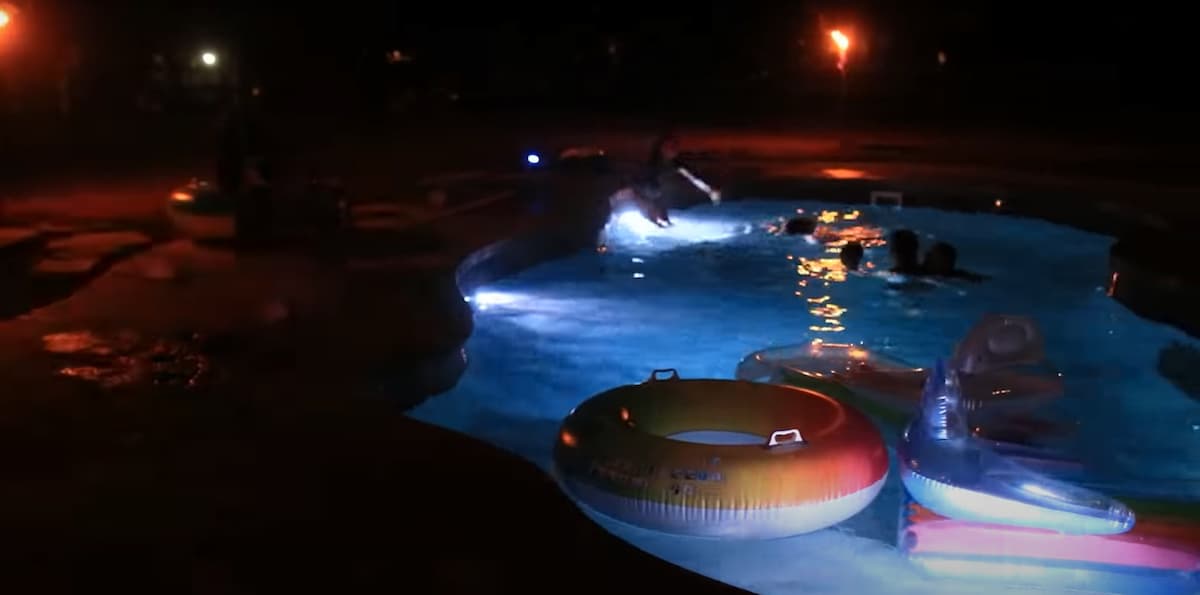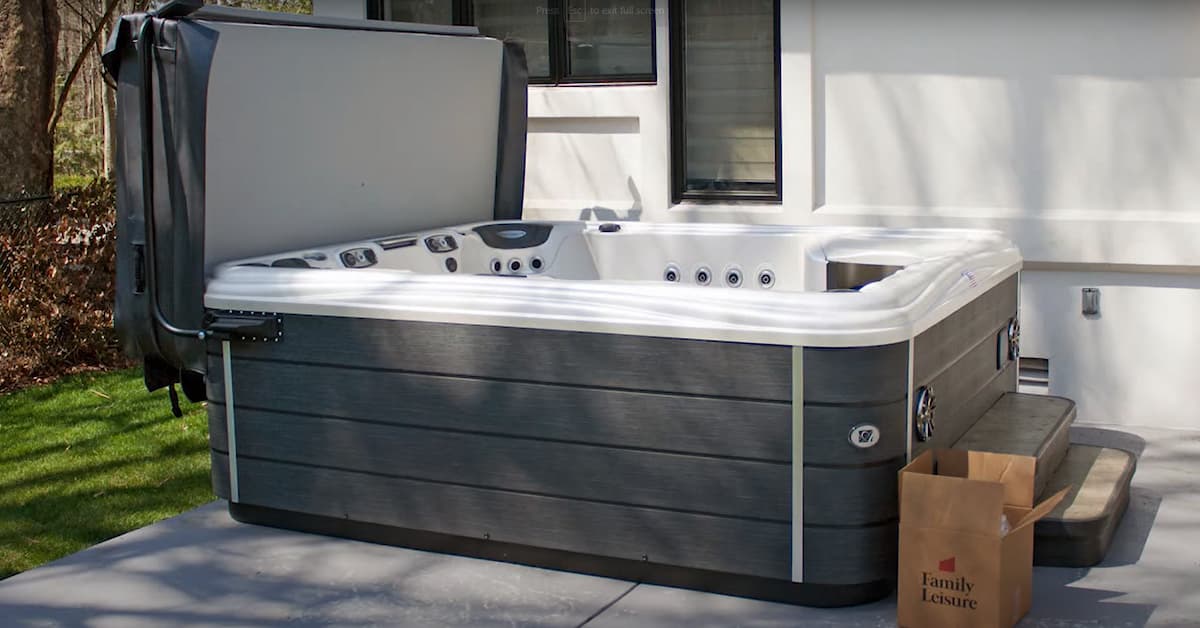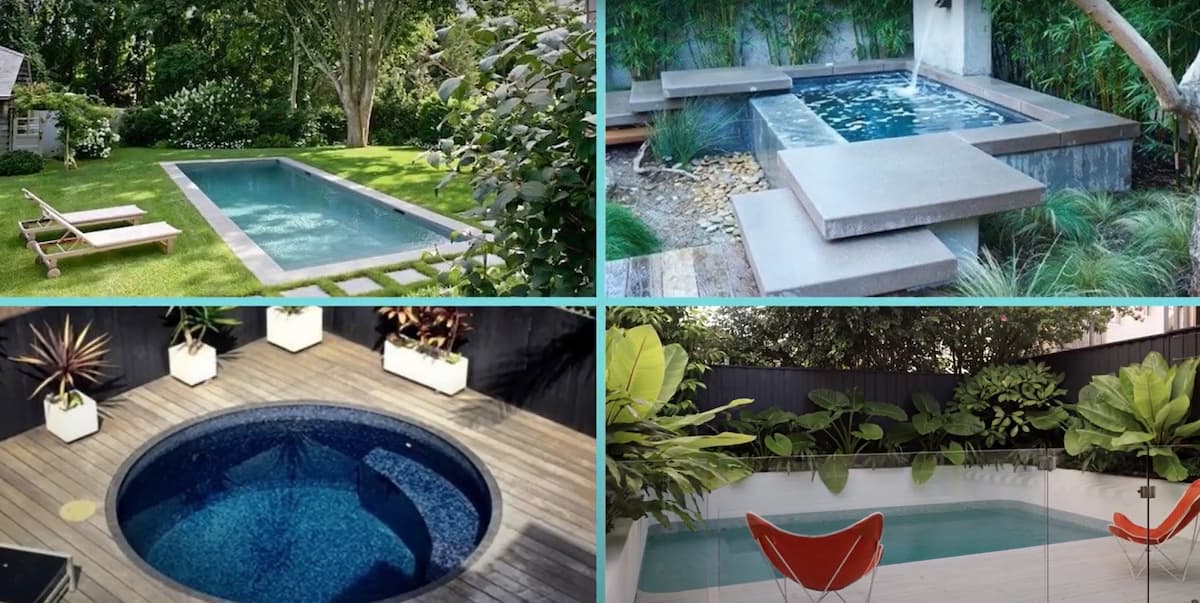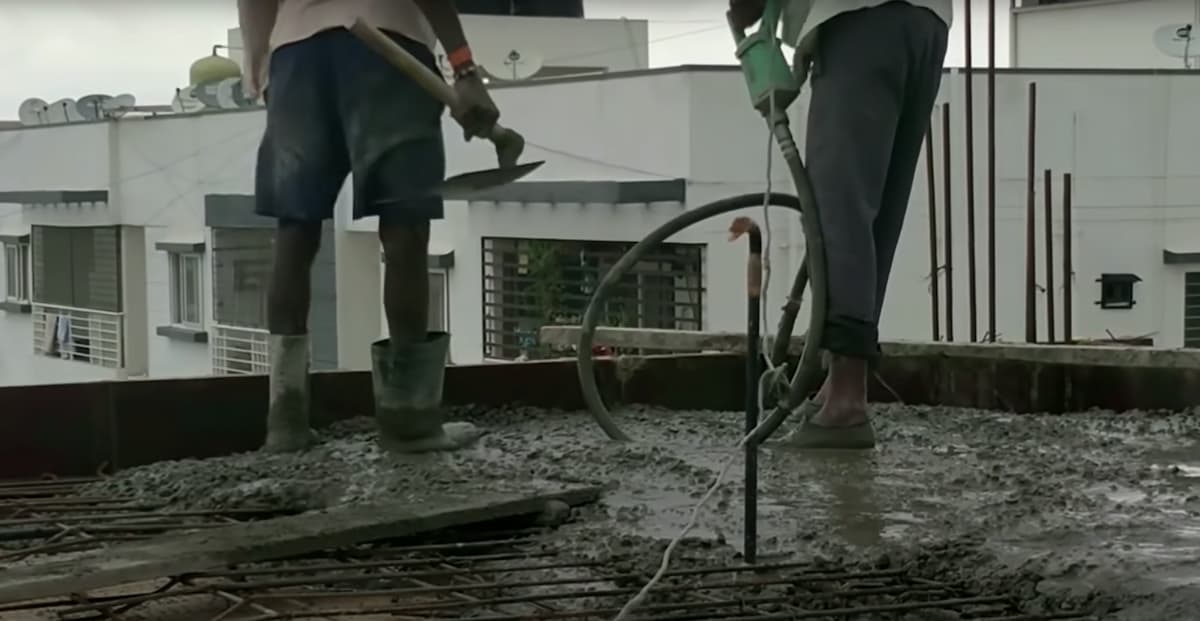
What is a fiberglass pool? | A fiberglass pool cost in Australia | Difference between fiberglass pools and concrete pools | Advantages of fiberglass pool | Disadvantages of fiberglass pool | Fiberglass pool installation time
Longing for the perfect Aussie summer?
Well, that dream can become a reality with a glimmering aquamarine pool that invites everyone for a refreshing swim.
Would you believe me if I said you could get a cost-friendly, low maintenance and easy installation pool in no time, ready for your aussie summer? “It sounds too good to be true”, you may ask. That’s until you are introduced to a new solution, fibreglass pools.
“Why use fibreglass pools?”. Well if you want a pool that has a organic thermal installation, saves electricity, and heats up faster than materials such as concrete you may think twice. Maintenance is vital for pool health regulations, but luckily fibreglass pools have a gelcoat lining that helps fight against bacteria, and algae, keeping the maintenance nice and simple for any individual, including you!
What is a Fiberglass Pool?
The fibreglass pool structure is made entirely of fibreglass materials.
Fibreglass pools are an excellent option for anyone who wants to spend more time enjoying their pool.
They are easy to install and maintain.
The shell consists of different fibreglass layers joined together.
A typical shell is ranges between 3/16 and 3/8 inches in thickness.
The structure of the fibreglass pool is constructed from a premade mold. For this reason, fibreglass molds are limited in shapes and sizes.
Inside the structure, a weather-resistant gelcoat is used to make the surface smooth, durable and algae-resistant.
The gelcoat makes maintenance easy and saves on cost in the long-term.
The shell is easily transported to your backyard and installed, all this within weeks.
Like any other pool, you can add accessories and extra features to your satisfaction.
The fibreglass surface is scratch resistant.
A fibreglass pool will save you money. They have the lowest cost over time as compared to concrete and vinyl pools.
How Much Does a Fibreglass Pool Cost in Australia?
“How much will I need for a fibreglass pool?” This is a question that prospective fibreglass pool owners ask a lot.
On average, Australians spend around $25,000-$35,000 for standard in-ground fibreglass pools.
However, the price may vary significantly based on your personal preference.
Some factors that influence the cost include:
- The shape, size and design of your pool. Complex shapes and bigger size will demand more investment.
- Extras and accessories: These include water features, heating, cover systems, spa jets and lighting. In case these are included in the overall implementation, the cost of your pool will be higher.
- The slope of your yard: Slopy areas may need to have retaining walls. Costs may go up.
- Finishes: The deck, paving, and landscaping will impact the cost.
- Council requirements: check with the local administration in your area. They will guide you in case you need to pay for any licenses.
There are many extras, and all these may be implemented over time. Just pick the right professional partner to guide you throughout the whole process.
If you are on a tight budget, consider setting up the absolute minimum for your pool with the aim of enhancements later on.
What is the Difference Between Fibreglass Pools vs Concrete Pools?
For many years concrete has been the preferred option when constructing an in-ground swimming pool.
However, in the recent past, fibreglass pools have become increasingly popular due to their significantly shorter construction times.
Let’s look at some of the main differences that will help you decide which method to choose when constructing your pool.
Construction Costs
The cost for an entry-level, professionally installed fibreglass pools is between $2500-$3500. The price is for the pool shell, delivery to your site, a crane to lift it into position, labour and relevant approvals. The cost may significantly rise depending on how fancy you want your pool to be.
On the other hand, concrete pools costs range from around $30,000-$50,000. A professional hand is required to bring all your requirements to life.
Pool Design, Shapes and Sizes.
Fibreglass pools are created from pre-built molds, so the shapes and sizes are limited to what the manufacturer has.
However, concrete pools are highly customizable. You can get any shape or size you fancy.
Installation and Construction
Typically, fibreglass pool installation takes 3-5 weeks, while a concrete pool takes approximately 3-6 months. That includes excavation, construction and finishing.
Interior Surface Texture.
Fibreglass pools have a gelcoat that is smooth to touch. It is resistant to scratches, UV and treated water. The steps or tanning ledges are not rough, although they have anti-slip properties.
Concrete pools can have pebblecrete, paint or tiles. These surfaces require minimal maintenance and are reliable.
Advantages of a Fibreglass Pool
Fibreglass pools has several advantages including:
Quick and easy installation: Fibreglass pools come premade direct from the manufacturer and ready to install. A standard installation can take between one to two weeks. The installation process is rarely affected by weather elements as compared to concrete or vinyl liner pools.
Visually appealing: Fibreglass pools have stunning surfaces. The smooth and shiny gel coating that is also non-abrasive gives the pool a fantastic look.
Easy to maintain: Fibreglass pools only require basic care. The smooth gel coat surface makes it easy to clean, control bacteria growth and algae. Algae can be a menace and lead to horrid green water if the pool is not treated with chemicals. However, for fibreglass pools, algae are unable to adhere to the smooth surface. That makes it easier to control this perennial nuisance.
Endurance and longevity: when you invest in a pool, you want it to last longer. Fibreglass pools are resilient and do not deteriorate over time, unlike concrete pools.
Environmental and cost-friendly: With fibreglass pools, you need fewer chemical. It also costs less to heat. The pool is insulated; therefore, temperature retention is better. You will also fill your pool less often because the gel coat offers a moisture barrier that prevents absorption.
Disadvantages of a Fibreglass Pool
Shape and size limitations: Fibreglass pools are created from predesigned moulds, so creativity is limited to the established shapes and sizes. You will have to select from the manufacturer’s choices, and they can only be so many variations made from each mould.
Some fibreglass pools also face transportation challenges due to their immense size.
Installation expertise: Concrete and gunite pool installers are much more prevalent in the market. Moreso, the process of fibreglass installation may vary from dealer to dealer.
Improper installation or manufacturing may lead to the development of cracks on the fibreglass.
When choosing a fibreglass pool company, ensure they have the requisite installation expertise.
Cracking: If the fibreglass is made of substandard material or the shell is too thin, external forces such as hard impact or earthquakes may cause it to warp.
Fibreglass can interfere with water quality: Make sure the alkalinity levels of water are not too high. In case of extreme PH levels, the gel coating which protects the fibreglass may need replacement.
Fibreglass Pool Installation Time
Excavation of the ground may take 1-2 days.
When the fibreglass pool arrives on site, it should take 1-2 days to nestle it into the excavated hole using a crane. With different equipment, it might take longer.
An additional 3-4 days for the plumbing, electrical installation and filling it up.
Depending on the weather, concrete pouring on the deck of your pool area and the finishing can take up to 3 days.
On average, the installation time should range from 2-5 weeks.
The Summer Dream can be so Easy…
With fibreglass pools quick and effective installation, deluxe, smooth, physical exterior, simple maintenance, and environmentally cost friendly features, it would be a difficult option to pass on.
Unlike other materials, fibreglass pools are made to withstand pressure, and are edurant over years of wear, making them a nice additive to your home as well as a effective investment opportunity that can prompt up your residencies value.





